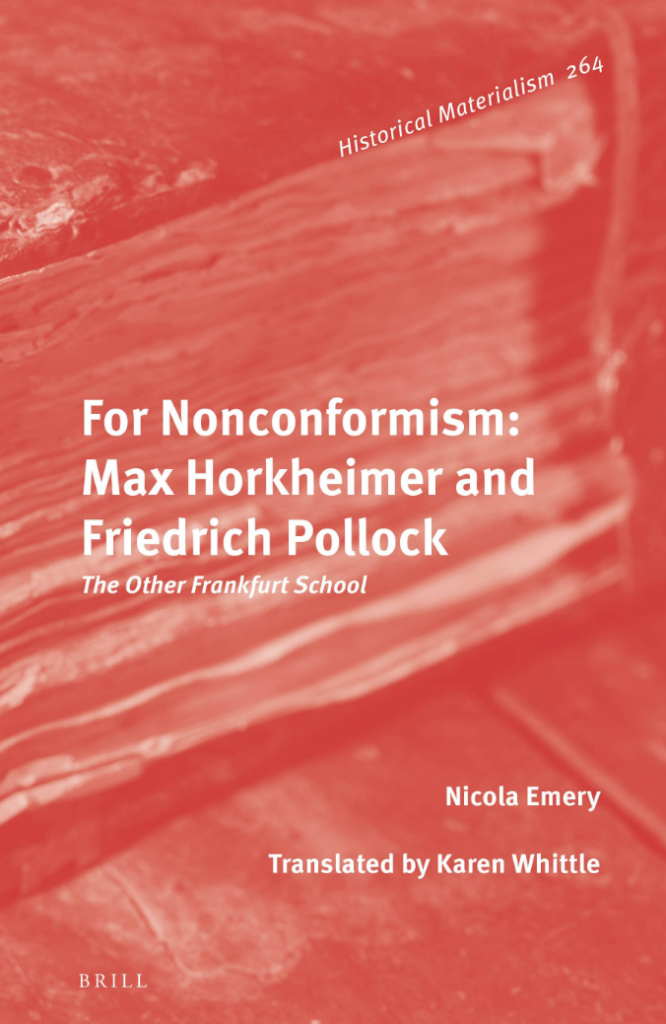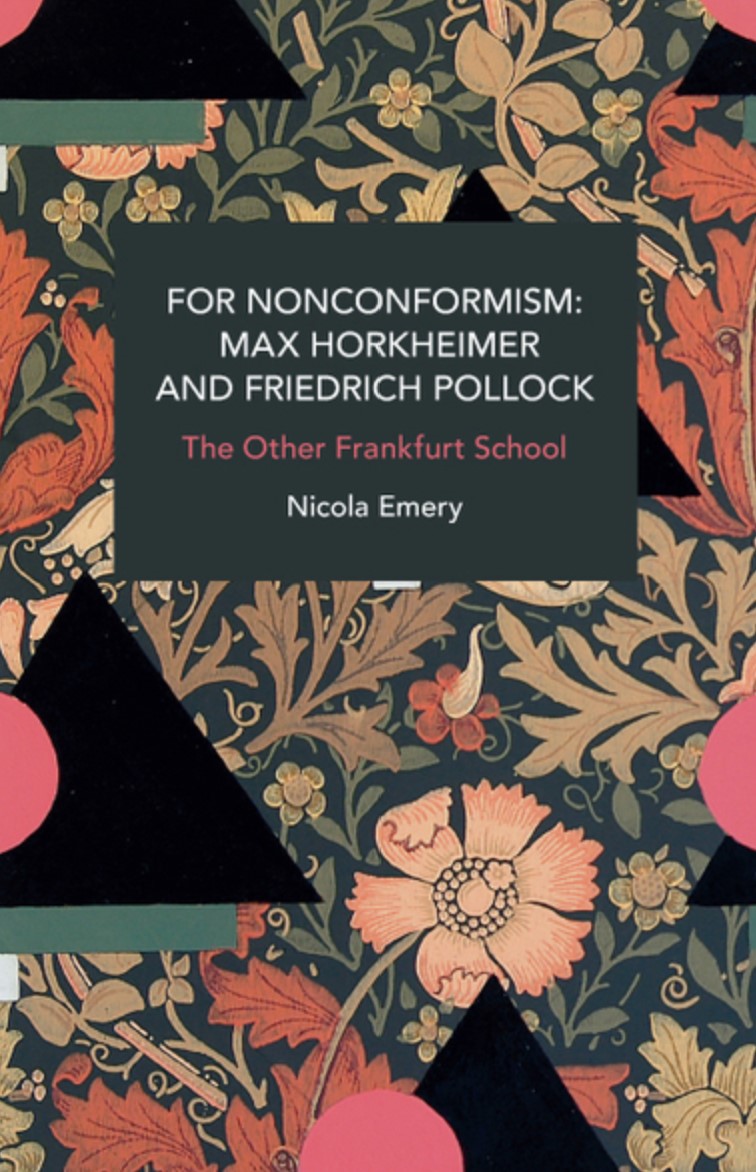Nicola Emery
Biographical Note
Nicola Emery, Ph.D. (1996), Università Cà Foscari Venezia, is Professor of Philosophy at the University of Svizzera italiana, and he leads the Max Horkheimer international Meetings. He has published monographs, many articles and also edited many books, the latest of which is Walter Benjamin Unfinished (Mimesis, 2022).
Table of Contents
Preface
Acknowledgements
List of Figures
Translator’s Note
1 For Nonconformism
1.1 Transgression, Autobiography, Philosophy
1.2 Forms of Life
1.3 Psyche and History
1.4 Biopower and the Hidden Faculties of Existence (Eroticism, Friendship, Art)
2 The Era of State Capitalism: Morphology and Genesis Starting from Friedrich Pollock
2.1 Friedrich Pollock’s Ideal Type
2.2 Between Domination and Welfare
3 Expatriation, Disorientation, Islands
3.1 Leaving Germany (Eichmann Trial, Israel and the Atlantic Pact)
3.2 Free from the Coercion of the Reality Principle (Switzerland)
3.3 Beyond Instrumental Architecture (the Houses in Montagnola)
4 Automation and the Eclipse of Democracy
4.1 Era of Automation and Crisis: Pollock’s Prognosis
4.2 Is Critical Theory Antiquated?
5 Critical Theory and Longing for the Other
5.1 The Absent Alterity
5.2 Critique of Instrumental Reason and Religion
5.3 Critical Judaism (beyond Identity, beyond Sovereignty, beyond Zionism)
Appendix: Figures
Bibliography
Index


